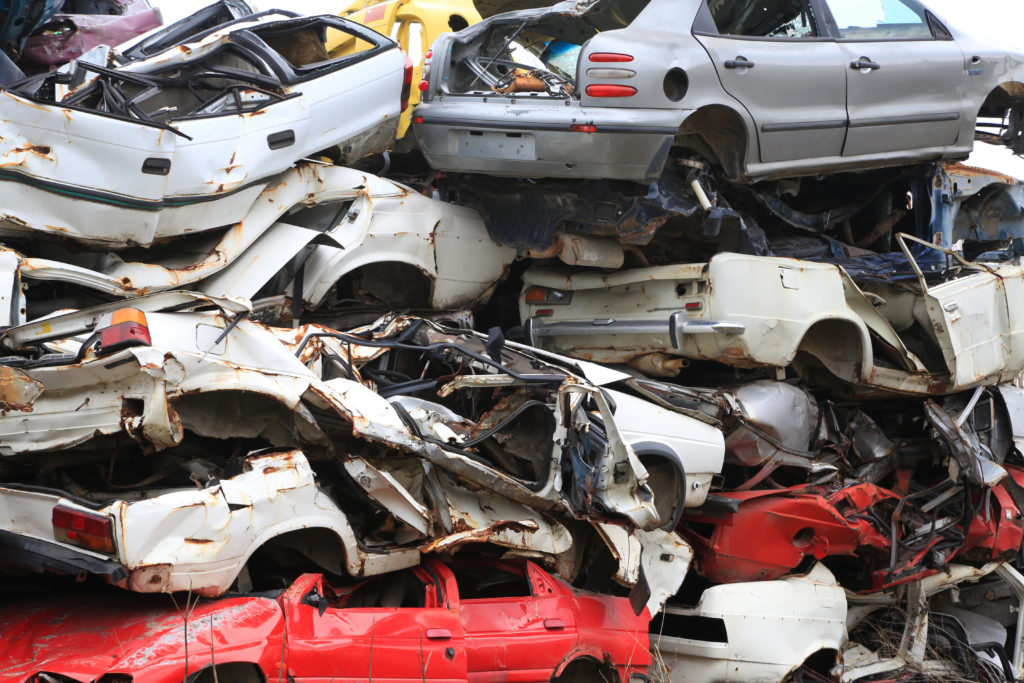Governments voted on a proposal to revise and merge the outdated End-of-Life Vehicles Directive and the 3R Type-Approval Directive into a single Regulation on Circularity Requirements on Vehicle Design and on Management of End-of-Life Vehicles.
The proposal aims to strengthen the EU single market while improving the circularity of the automotive sector and reducing the environmental impacts associated with the design, production, use and end-of-life treatment of vehicles.
The extended scope of the regulation to cover more vehicles, and the inclusion of specific measures such as a Circularity Vehicle Passport (CVP), an EU-wide Extended Producer Responsibility (EPR) system to hold manufacturers accountable, and new requirements on the reuse of parts, components’ recycled content, better collection and improved treatment at the end of a vehicle’s life, were intended to steer the automotive sector towards decarbonisation and circularity.
The European Environmental Bureau (EEB) has said that while the council made some “cosmetic improvements”, it failed to remedy missed opportunities in the initial proposal, and “watered down” key provisions, despite the calls by environmental organisations, consumer groups and the industry.
EEB has said that the council’s position:
- fails to address the unsustainable material use and footprint of the sector by decreasing the number of cars, and reversing the trend to “ever bigger” vehicles;
- still focuses on recycling while ignoring the strategies of durability, reuse and repair, which aim to extend the lifespan of cars
- insufficiently implements the Polluter Pays Principle, neglecting the upper levels of the waste hierarchy and creating an unfair double regime for non-EU countries receiving used vehicles from the EU.
Fynn Hauschke, senior policy officer, circular economy and waste, European Environmental Bureau (EEB), said: “Member States keep dodging the elephant in the room: the ever-increasing size and number of cars on roads is driving up the automotive sector’s material use and environmental footprint. Without tackling this and requiring carmakers to build durable and repairable vehicles from the start, the regulation won’t put the sector on a greener path.”
Barbara Metz, managing director, Environmental Action Germany (Deutsche Umwelthilfe – DUH), said: “The anti-recycling cartel, for which the European Commission fined the automotive industry 458 Million Euro, has shown that VW, Mercedes, BMW need stricter rules when it comes to circular economy.
“The position of the EU Council on the vehicles regulation shows that the environment ministers of the Member States are bowing to the will of the car industry. Actual producer responsibility requires to oblige all producers without exceptions to join a producer responsibility organisation that charges sufficiently high fees to enable high-quality recovery of critical raw materials and other valuable materials.
“Additionally, these fees must be modulated in such a way that producers with particularly environmentally harmful vehicles must pay significantly higher fees.”
Sector reactions
Paolo Campanella, secretary general of FEAD, said: “Europe must maintain its momentum in advancing circularity in the automotive sector and remain committed to the objectives referred to in the title of the legislative proposal. The Regulation should fully recognise the pivotal role of Authorised Treatment Facilities (ATFs) and recyclers and ensure the timely and effective enforcement of circularity targets.”
Katharina Schlegel, circularity director at Plastics Europe, said: “We welcome the progress made by the Council of Ministers today on the End-of-Life Vehicle Regulation (ELVR), this is particularly important as industry needs regulatory clarity now to scale up circular innovations. Although today’s developments show significant promise, there is also clear room for improvement.
“We believe that a minimum target of 25% of recycled content in automotive plastics by applying all recycling technologies, with up to 5% coming from circular sources such as bio-based feedstock, is realistic and achievable.
“Plastics Europe calls for the explicit inclusion of bio-based plastics under Article 55 which would confirm a growing recognition of the importance of sustainable material innovation in Europe. However, the 95-month delay before the formal inclusion of bio-based plastics is far too slow, and we urge the Council and Parliament to bring this timeline forward without delay so bio-based solutions can contribute to a circular economy.”





Subscribe for free